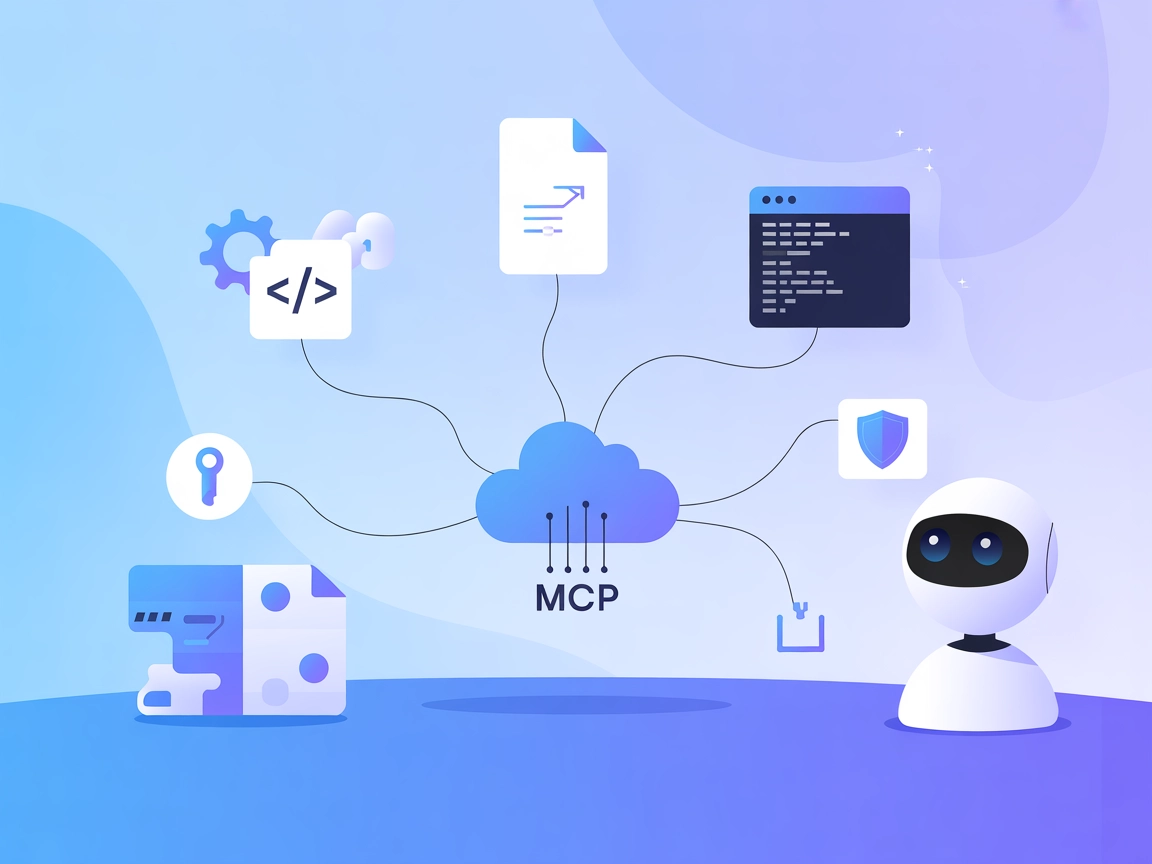
JetBrains MCP Server Integration
The JetBrains MCP Server connects AI agents with JetBrains IDEs like IntelliJ, PyCharm, WebStorm, and Android Studio, enabling automated workflows, code navigat...

Bridge Jupyter Notebook and AI assistants with JupyterMCP for advanced code execution, cell management, and workflow automation within FlowHunt.
FlowHunt provides an additional security layer between your internal systems and AI tools, giving you granular control over which tools are accessible from your MCP servers. MCP servers hosted in our infrastructure can be seamlessly integrated with FlowHunt's chatbot as well as popular AI platforms like ChatGPT, Claude, and various AI editors.
JupyterMCP is a Model Context Protocol (MCP) server designed to bridge Jupyter Notebook (version 6.x only) with AI assistants such as Claude AI. Through a WebSocket-based server, JupyterMCP enables AI models to directly interact with and control Jupyter Notebooks. This allows for AI-assisted code execution, data analysis, notebook cell management, and output retrieval. By exposing Jupyter Notebook’s core functions as MCP tools and resources, the server empowers developers to automate workflows, manipulate notebook content, and streamline data science tasks, all from within their AI assistant or MCP-compatible client. JupyterMCP is ideal for anyone seeking to combine the flexibility of Jupyter Notebooks with the intelligence of LLMs, fostering a more interactive, productive development environment.
No prompt templates are mentioned in the repository documentation or code.
No explicit MCP resources are described in the documentation or code.
The following tools are described in the README and present in the server:
No setup instructions for Windsurf are provided.
git clone https://github.com/jjsantos01/jupyter-notebook-mcp.git
uv run python -m ipykernel install --name jupyter-mcp
Claude > Settings > Developer > Edit Config > claude_desktop_config.json and add:{
"mcpServers": {
"jupyter": {
"command": "uv",
"args": [
"--directory",
"/ABSOLUTE/PATH/TO/PARENT/REPO/FOLDER/src",
"run",
"jupyter_mcp_server.py"
]
}
}
}
/ABSOLUTE/PATH/TO/ with your local path.)No API keys are required or mentioned in the setup.
No setup instructions for Cursor are provided.
No setup instructions for Cline are provided.
Using MCP in FlowHunt
To integrate MCP servers into your FlowHunt workflow, start by adding the MCP component to your flow and connecting it to your AI agent:

Click on the MCP component to open the configuration panel. In the system MCP configuration section, insert your MCP server details using this JSON format:
{
"MCP-name": {
"transport": "streamable_http",
"url": "https://yourmcpserver.example/pathtothemcp/url"
}
}
Once configured, the AI agent is now able to use this MCP as a tool with access to all its functions and capabilities. Remember to change “MCP-name” to whatever the actual name of your MCP server is (e.g., “github-mcp”, “weather-api”, etc.) and replace the URL with your own MCP server URL.
| Section | Availability | Details/Notes |
|---|---|---|
| Overview | ✅ | Basic description available |
| List of Prompts | ⛔ | No prompt templates found |
| List of Resources | ⛔ | No explicit resources found |
| List of Tools | ✅ | Tools described: cell manipulation, execution, etc. |
| Securing API Keys | ⛔ | No API key setup described |
| Sampling Support (less important in evaluation) | ⛔ | No mention of sampling support |
JupyterMCP provides a focused integration for controlling Jupyter Notebook via MCP, with solid documentation for Claude, but lacks broader platform instructions and resource/prompt standardization. The toolset is practical for notebook automation, but the absence of explicit resource/prompt support and generalization to other clients limits its overall utility. Based on the tables, we’d rate this MCP a 5/10 for functionality and documentation.
| Has a LICENSE | ✅ (MIT) |
|---|---|
| Has at least one tool | ✅ |
| Number of Forks | 13 |
| Number of Stars | 71 |
JupyterMCP is a Model Context Protocol (MCP) server that allows AI assistants to control and interact with Jupyter Notebooks (6.x) via WebSocket, enabling automation of code execution, cell management, and output retrieval.
JupyterMCP exposes tools for cell manipulation (inserting, executing, managing cells), notebook management (saving, retrieving info), cell execution (individual or all cells), and output retrieval with text limitation.
Use cases include AI-assisted code execution, automated data analysis, notebook and cell management, educational workflows, and interactive notebook manipulation through LLMs or MCP-compatible clients.
No API keys are required for setup or operation of JupyterMCP.
Install Python 3.12+, uv, and the Claude desktop app. Clone the repo, install the kernel, edit the Claude config to add the MCP server, and restart Claude. Full steps are detailed in the setup section.
The current documentation provides setup instructions only for Claude. Broader platform support may require manual configuration.
JupyterMCP is licensed under the MIT License.
Connect Jupyter Notebooks to FlowHunt and AI assistants for automated code execution, interactive data analysis, and seamless workflow management.

The JetBrains MCP Server connects AI agents with JetBrains IDEs like IntelliJ, PyCharm, WebStorm, and Android Studio, enabling automated workflows, code navigat...

The Model Context Protocol (MCP) Server bridges AI assistants with external data sources, APIs, and services, enabling streamlined integration of complex workfl...

The Markitdown MCP Server bridges AI assistants with markdown content, enabling automated documentation, content analysis, and markdown file management for enha...
Cookie Consent
We use cookies to enhance your browsing experience and analyze our traffic. See our privacy policy.